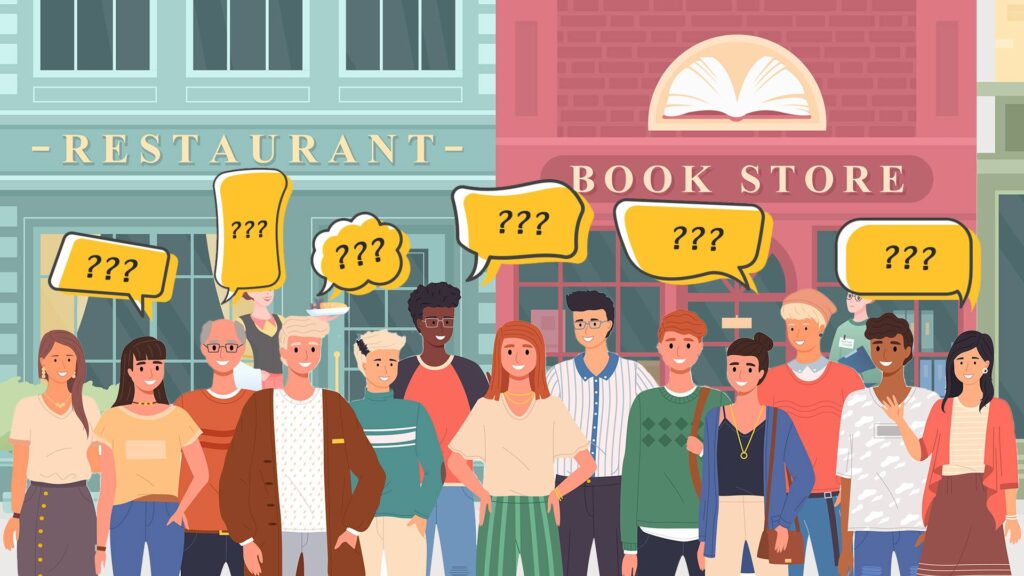Early in 2024, Psychology Today published an article citing research on how generative AI may influence how and whom we trust. The research suggested that AI technology is influencing our sense of trust, particularly, as people we perceive machines as reliable.
The research went on to suggest that by using social features through a chat interface, we may subscribe more skill and truth to the information it provides.
A year earlier, the American Psychological Association published research confirming that conversations are important to our psychological well-being. Asking questions that demonstrate that you are listening (such as when a generative AI responds by having “listened to a question” and asking a follow-up) has been found to be one of the best ways to build rapport.
It turns out that the use of the chat interface is the game changer, leading us to trust the generative AI response, and this just might be the signal triggering a change in how we search.
The Shift from Search to AI Chatbots
I remember driving south along the 101 from San Francisco and seeing the Excite@Home logo high on a building standing just off the highway. At the time and in my early twenties I undervalued the seismic shift in how people found and used information. Google followed a couple of years later in 1998, and slowly grew to dominate the search engine market.
25 years, and two decades of coding later, search engines have evolved into ever-changing behemoths of internet categorizing complexity.
For Google, little did they know that by the 2020s they would command 85%+ of the desktop and over 90% of the mobile search markets. It is worth noting that over 58% of all searches are triggered from mobile devices. (All statistics, with thanks to Statista)
If it hadn’t been for Generative AI, I feel confident that search engines would have remained the same. Voice is clearly a factor; however, voice search has been around for a number of years, and its ability to bring about change is somewhat less (Do not underestimate the importance of voice, though; we’ll circle back to this one later).
Mid 2023, Microsoft deployed its OpenAI-powered upgrade to its search engine, Bing, and for the first time in recent history, Google’s dominance of the desktop search engine, albeit not mirrored on mobile, market began to shrink.
OpenAI burst into the public consciousness in late 2022 and quickly became the eighth most visited website (according to Similarweb). Google followed with Gemini and their AI Overviews came a year later after Bing. All adopting the chat-styled interface.
Every year the Nielsen Group publish the Global Trust in Advertising report. While the numbers across each category slip and slide a degree here and there; since 2009, the most trusted consumer information source has always been from those they know.
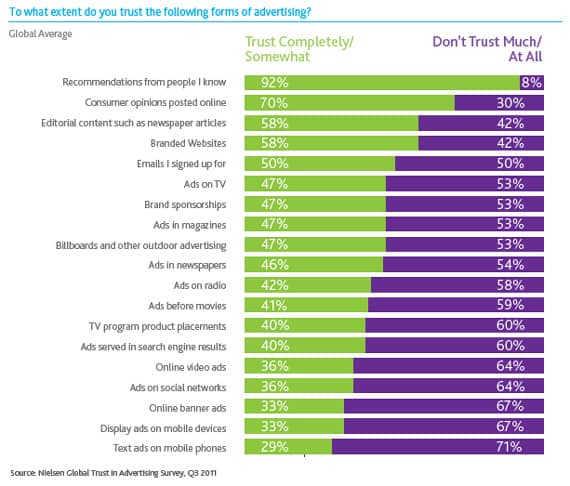
As I mentioned earlier, research is showing the through its use of a chat interface, people are beginning to trust generative AI and the responses it provides.
Chatbots have been around for years and many of us have grown to dislike them. In 2022, Business Wire reported research by UJET Research that 80% of consumers who interacted with a Chatbot said it increased their frustration level.
So, we know that it isn’t the Chat in itself that drives trust but rather the way that Generative-AI is able to understand input and present a response in a manner similar to how we would ourselves.
I remember about ten years ago having a discussion on the importance of utterances in Chatbot design. Utterances are the filler words and slang that we use without thinking about it. They added a sense of realism to a Chatbot that a simple closed-question Chatbot couldn’t match.
The Psychological Factors Driving Trust in AI Chats
By 2021, Nielsen had learned that 88% of people trusted recommendations from those they knew. Up from 80% almost ten years earlier.
And now we are seeing that generative AI is being seen as a trusted source just a other individuals network are too.
The secret to the growing success of AI as a trusted source is perhaps the grounding in conversation and the perceived personalization of the dialogue.
This is supported by research published in 1991, Grounding in Communication (Clark & Brennan – Grounding in Communication, American Psychological Association) suggested that in order to communicate successfully, there must be mutual knowledge, beliefs, and assumptions between both parties.
Generative-AI certainly ticks this box.
Next, we have the Halo Effect. This is where positive feelings toward a person, company, brand, or product in one area positively influence feelings in another.
Put another way, research by the Growth Memo identified that users of Generative AI are more likely to trust recommendations from Generative AI than those that are not.
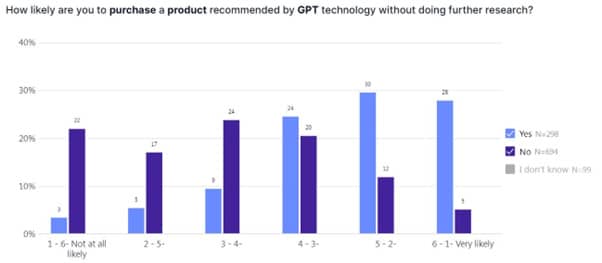
A closing thought. Research by UK’s Ofcom in 2024 demonstrated that Generative-AI adoption is greatest among Gen-Z.
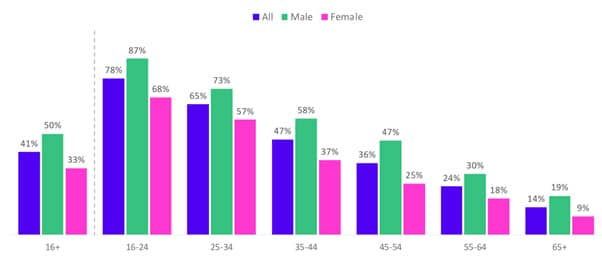
Of those using Generative-AI, ChatGPT is the most popular.
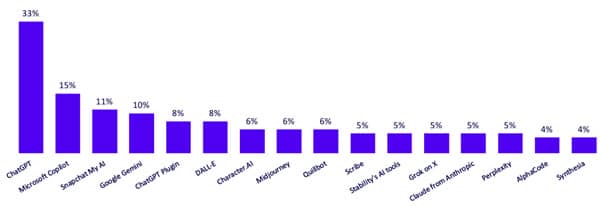
What is the most common use of the technology? Finding information.
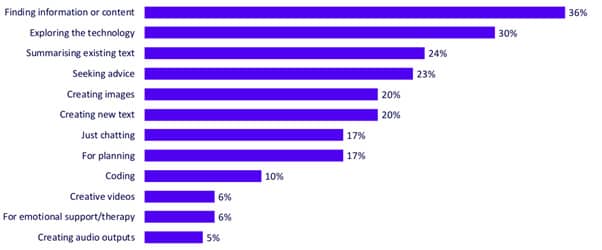
Conclusion: The Future of Trust in AI-Driven Search
I have only touched the surface of how generative AI is shaping how consumers search for and discover brands, products, and services.
From what I can see though, the personalized feeling a consumer receives while using Generative-AI chat is a game changer.
Perhaps it’s time to weave GEO into your strategy, and we’re here to help.


